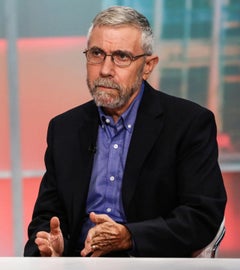MI SELECCIÓN DE NOTICIAS
Noticias personalizadas, de acuerdo a sus temas de interés

If you are old enough to remember the 1990s, you remember the endless parade of alleged scandals - above all, Whitewater - all of them fomented by right-wing operatives, all eagerly hyped by mainstream news outlets, none of which actually turned out to involve wrongdoing. The usual rules didn’t seem to apply. Instead, Clinton rules were in effect, under which innuendo and guilt by association were considered perfectly legitimate, and under which the initial suggestion of lawbreaking received front-page headlines, but the subsequent discovery that no misconduct had occurred was buried in the back pages, if it was reported at all.
Some of the same phenomena resurfaced during the 2008 presidential primary.
So, is this time different? First indications are not encouraging: It’s already apparent, for example, that the author of the anti-Clinton book that’s driving the latest accusations is a real piece of work.
Again, maybe there’s something there. But given the history here, we’d all be well advised to follow our own Clinton rules, and be highly suspicious of any reports of supposed scandals unless there’s hard proof, rather than mere innuendo.
Oh, and the news media should probably be aware that this isn’t 1994: There is a much more effective progressive infrastructure in place and much more scrutiny of reporting; the kinds of journalistic malpractice that went unsanctioned 20 years ago can land you in big trouble now.
This Is Not a Trade Agreement
Greg Mankiw’s latest New York Times commentary (nyti.ms/1OP1P9E) has me puzzled. Has he really read nothing about the Trans-Pacific Partnership? Is he completely unaware of the nature of the argument against it?
Personally, I’m a lukewarm opponent of the deal, but I don’t see it as the end of the republic, and can even see some reasons (mainly strategic) to support it. One thing that should be totally obvious, however, is that it’s inappropriate and insulting to offer an off-the-shelf lecture on how trade is good because of comparative advantage, and about how protectionists are dumb. That’s because the T.P.P. isn’t a trade agreement - it’s all about intellectual property and dispute settlement. The big beneficiaries of the deal are likely to be pharmaceutical companies and firms that want to sue governments.
Those are the issues that need to be argued.